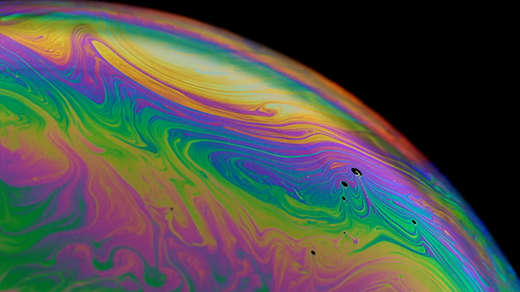What's up in
Fluid dynamics
Latest Articles
Physicists Make Electrons Flow Like Water
We describe electricity as a flow, but that’s not what happens in a typical wire. Physicists have begun to induce electrons to act like fluids, an effort that could illuminate new ways of thinking about quantum systems.
Long-Sought Proof Tames Some of Math’s Unruliest Equations
Mathematicians finally understand the behavior of an important class of differential equations that describe everything from water pressure to oxygen levels in human tissues.
Using AI, Mathematicians Find Hidden Glitches in Fluid Equations
A $1 million prize awaits anyone who can show where the math of fluid flow breaks down. With specially trained AI systems, researchers have found a slew of new candidates in simpler versions of the problem.
The Hidden Math of Ocean Waves Crashes Into View
The math of even the simplest ocean waves is notoriously uncooperative. A team of Italian mathematicians has made major advances toward understanding it.
How Climate Scientists Saw the Future Before It Arrived
Over the past 60 years, scientists have largely succeeded in building a computer model of Earth to see what the future holds. One of the most ambitious projects humankind has ever undertaken has now reached a critical moment.
Epic Effort to Ground Physics in Math Opens Up the Secrets of Time
By mathematically proving how individual molecules create the complex motion of fluids, three mathematicians have illuminated why time can’t flow in reverse.
New ‘Superdiffusion’ Proof Probes the Mysterious Math of Turbulence
Turbulence is a notoriously difficult phenomenon to study. Mathematicians are now starting to untangle it at its smallest scales.
Finding Beauty and Truth in Mundane Occurrences
The physicist Sidney Nagel delights in solving mysteries of the universe that are hiding in plain sight.
How America’s Fastest Swimmers Use Math to Win Gold
Number theorist Ken Ono is teaching Olympians to swim more efficiently.








